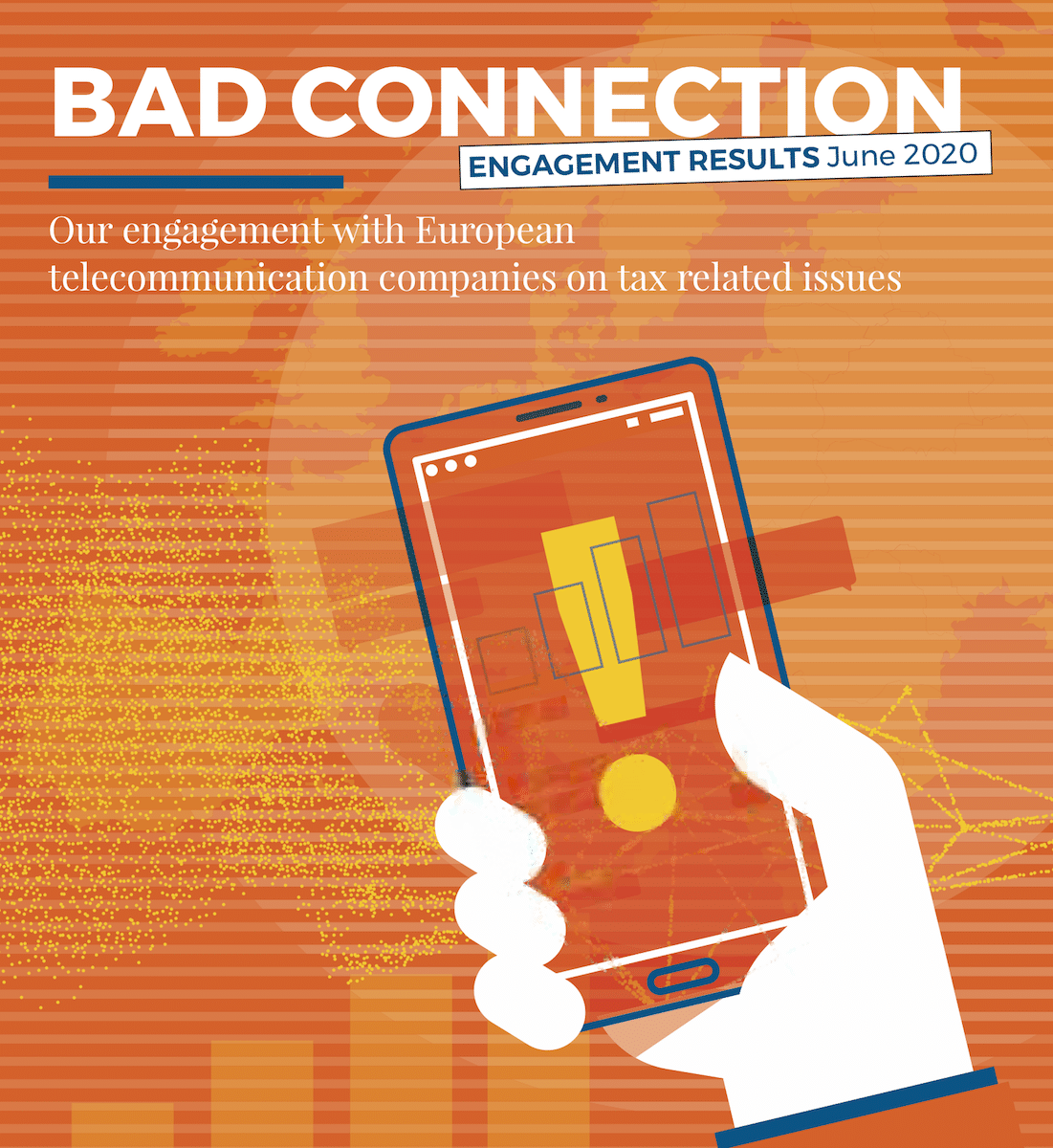Aggressive tax planning. New SfC’s report

Aggressive tax planning. SfC publishes a report on its engagement with European telecommunication companies
The SfC-Shareholders for Change network has published a report on its engagement with European telecommunication companies today, during its online summer meeting.
The engagement, that lasted 18 months, has been focussed on tax related issues, following the publication of SfC research “Bad Connection“, revealing a general lack of tax transparency at four major European telecommunication companies: Vodafone, Deutsche Telekom, Telecom Italia and Orange.
Addressing inequality through the promotion and implementation of tax justice is one of our network’s engagement priorities
«Addressing inequality through the promotion and implementation of tax justice is one of our network’s engagement priorities», explains Aurélie Baudhuin, president of SfC. «We have sent a letter to all four companies at the beginning of last year, requesting them to publish country-by-country reporting (CbCR) data and explain the role of certain subsidiaries based in low tax jurisdictions».
All companies, except for the France-based Orange, that never replied, were generally cooperative and engaged in a dialogue with SfC. While Vodafone is already publishing CbCR data, neither Deutsche Telekom nor Telecom Italia committed to publishing such information.
Telecommunication companies were generally cooperative but need to do more. Tax transparency is just the first step.
Vodafone’s transparency on CbCR revealed a tax planning strategy that is apparently more aggressive than that of Deutsche Telekom and Telecom Italia. «Vodafone is currently not exposed to relevant regulatory risk but could be indeed exposed to potential reputational risks, since its strategy results in significant tax revenue losses for UK and other countries, with an impact on their welfare systems», continues Baudhuin. «This doesn’t seem to be the case for Deutsche Telekom and Telecom Italia, at least not to the same extent as Vodafone».
The engagement project was supported by the taxation expert Tommaso Faccio (University of Nottingham), co-founder of Tax Justice Italia.
Summary of SfC’s engagement with four major European telecommunication companies.
| Company | Issues | Dialogue | Results |
| Vodafone | Alleged aggressive tax planning and profit shifting to Luxembourg and Malta. | The company was cooperative and answered to SfC’s letter and mails providing the requested information. |
The company does already publish CbCR data but does not envisage to relocate some of its Luxembourg activities to the UK, as suggested by SfC. Its tax strategy appears to be more aggressive than that of Deutsche Telekom and Telecom Italia. |
| Deutsche Telekom |
Request to publish country by country reporting data in the group’s financial statements and clarify the role of its subsidiaries in Luxembourg, Netherlands and Cyprus. |
The company was very open to dialogue and provided SfC with detailed answers. A conference call was organised with DT’s tax managers. |
The company does not envisage to publish CbCR data. Based on the provided information, all intragroup transactions are taxed in Germany and DT’s tax strategy does not appear to be particularly controversial. |
| Telecom Italia |
Request to publish country by country reporting data in the group’s financial statements and clarify the role of its subsidiaries in Luxembourg, Netherlands, Ireland and Panama. |
The company was open to dialogue and provided SfC with detailed answers. |
The company does not envisage to publish CbCR data, at least not in the short term. Based on the provided information, Telecom Italia’s tax strategy does not appear to be particularly controversial. |
| Orange |
Request to publish country by country reporting data in the group’s financial statements and clarify the role of its subsidiaries in Luxembourg, Netherlands, Ireland, Singapore, Panama and UK. |
The company wasn’t cooperative and never replied to SfC’s questions. |
SfC will evaluate the opportunity to submit the “Bad Connection” questions at the company’s Annual General Meeting in 2021. |